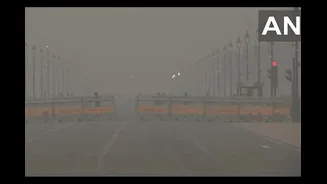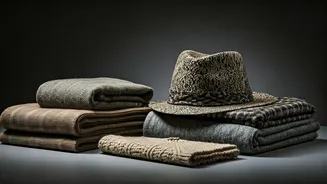Delhi woke up to a double whammy of biting cold and toxic air on Monday, as the capital recorded its coldest November morning in three years while its air quality continued to remain in the “very poor”
zone.
The national capital logged a minimum temperature of 9°C on Sunday, which is 4.5 degrees below normal, according to the India Meteorological Department (IMD). This is the lowest November temperature since November 29, 2022, when the mercury dipped to 7.3°C. In comparison, Delhi recorded minimums of 9.2°C on November 23 in 2023 and 9.5°C on November 29 in 2024.
The IMD has predicted shallow fog on Monday, with temperatures expected to settle around 25°C (maximum) and 9°C (minimum).
Toxic smog refuses to lift
Even as winter tightened its grip, Delhi slipped further into a blanket of heavy smog. The city’s average Air Quality Index (AQI) stood at 359 at 7 am, firmly in the “very poor” category, showing no respite from Sunday’s reading of 385.
Bawana remained the worst-hit with a severe AQI of 427, the highest in the city on Monday morning. The cleanest air was recorded at NSIT Dwarka, but even there the AQI measured 225, falling in the “poor” category.
Landmarks disappear behind haze
Thick smog engulfed several parts of the city, including major landmarks such as India Gate and Kartavya Path, where the AQI was logged at 341. Other pollution hotspots reported similarly alarming levels: Chandni Chowk (383), RK Puram (366), ITO (394), Punjabi Bagh (384), Patparganj (369), Pusa (365) and Dwarka Sector-8 (356). Anand Vihar continued to register hazardous air, with levels at 383.
Low temperatures, calm winds, and constant emissions have formed a deadly combination, trapping pollutants close to the surface and worsening visibility and health risks across the city.
GRAP Stage III restrictions continue
With the pollution crisis deepening, Stage III of the Graded Response Action Plan (GRAP)—activated on November 11—remains in place. Measures under this stage include:
- Ban on non-essential construction activities
- Restrictions on BS-III petrol and BS-IV diesel four-wheelers
- Suspension of on-campus classes for students up to Class 5
- Curbs on industries running on non-clean fuels
- Prohibition of non-emergency diesel generator sets
Supreme Court turns up the pressure
Amid the unrelenting pollution levels, the Supreme Court last week directed Punjab and Haryana to file detailed reports on steps taken to curb stubble burning—a major seasonal contributor to Delhi’s air crisis. A bench led by Chief Justice of India BR Gavai asked the states to outline their ongoing mitigation measures.













